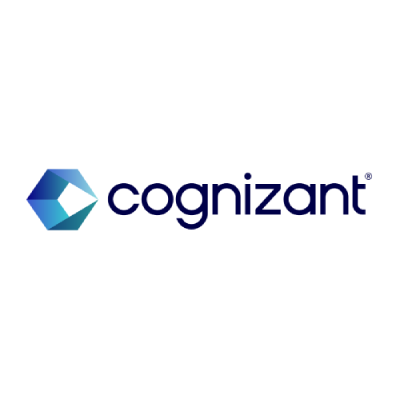The Central Bank of Ireland issued its eagerly awaited draft Individual Accountability Framework (IAF) in March. This consists of Conduct Standards, enhancements to the Fitness & Probity regime, and – most notably – the Senior Executive Accountability Regime (SEAR). It thereby follows in the footsteps of the UK’s Senior Managers and Certification Regime (SMCR) and will be looking to achieve the same benefits for Ireland.
Firms will now be seeking to implement the proposed changes ahead of the 31 December 2023 and July 2024 deadlines for the conduct standards and SEAR respectively. But given that the UK went through a similar exercise relatively recently, what could firms in Ireland learn from the UK’s SMCR implementation to ensure they avoid the same pitfalls and challenges?
From our experience, firms in the UK encountered specific challenges in their implementation of SMCR - which were common amongst firms. We highlight 4 specific such challenges that firms will need to navigate to ensure a successful approach to implementing SEAR and the IAF below.
1. Putting in place strengthened and enhanced Job Descriptions and Statement of Responsibilities can be a sensitive matter as it requires explicit definition and clarification of roles and responsibilities.
One of the main elements of the SEAR will be to define the Statements of Responsibilities (SoR) and Job Description (JDs) for each Senior Executive. While organisations vary in their rigour of keeping JDs up to date and aligned at all times, there is often, inevitably, a slight fuzziness around the exact responsibilities noted.
However, when it comes to writing down the SoR and JD, such fuzziness is no longer helpful. Responsibilities need to be clearly and unambiguously defined. Senior executives will want to ensure that this accurately captures their responsibilities and truly aligns to their remit. In particular, this needs to match the area over which they hold the right level of control and influence.
This can sometimes lead to sensitive conversations and the need to address wider and more underlying fundamental organisational challenges.
2. For inbound and third country firms, assigning overseas managers with responsibilities under SEAR can be challenging as they will be held responsible outside their home jurisdictions.
Although not as expansive as the UK’s SMCR framework, Ireland’s version still introduces a potential extra-territoriality effect. The PCF16 function (branch manager of branches established outside the state) could be located outside of Ireland. Yet, would be held responsible under the SEAR regime under Irish jurisdiction. Clearly that is something that often creates some unease amongst those senior executives that would likely have to accept such responsibility.
To address this challenge, it again becomes very important to clearly delineate areas of responsibility, influence and control. Then the right governance and control framework needs to be established or adapted to ensure the PCF16 has the authority commensurate to their responsibilities that will provide the right level of confidence. Clarity of legal advice will be crucial here when such responsibilities are taken on.
3. Implementing a detailed reasonable Steps framework at the outset as enhancing a light framework retro-actively is always more time consuming and painful.
A core element of the IAF is the proposed Reasonable Steps concept – very similar to other countries that have implemented an individual accountability framework. At first glance this sounds quite simple. And we’ve seen many firms put in place a straightforward framework that identifies what MI / processes are in place to evidence each individual responsibility in the SoR.
But in practice such frameworks haven’t proven to stand the test of time. Retroactively evidencing why certain decisions were made requires a more holistic view – one that includes governance committees, business unit structure, delegations, culture, tooling as well as MI. Hence, a solid Reasonable Steps framework should include all these elements. This will require a bit more effort up front but will undoubtedly be quickly rewarded when the regulator comes knocking.
4. Compliance with conduct standards will require a culture of customer centricity and adequate support for employees.
At heart of the IAF regulation is the objective to enhance conduct standards. It follows the global trend for regulators to increasingly focus on accountability, culture and conduct by imposing stricter consequences for failures in these areas. When failures do happen they tend to impact either, or both, customers and employees. Thus, customer centricity and employee experience should not be overlooked in the implementation of the IAF. To achieve this, financial firms will have to:
- Embed a culture of customer-centricity within their business – ensuring that employees are able to understand and follow the conduct standards to enable better customer outcomes
- Focus on the employee experience - ensuring that employees, particularly those in senior roles to feel adequately supported by the organisation so as to avoid creating the ‘chilling effect’ that the regulator has warned against.
We believe that this can achieved by firms by applying the 3M model that can help create a balance between business performance and employee engagement:
Mindset – Define and communicate your vision for meeting the conduct standards and how this aligns to your brand, purpose, culture and employee value proposition.
Methods – Define the culture of customer centricity that enables your employees to thrive and deliver. This includes reviewing and revising your communications, processes and training & development.
Metrics – Define and measure metrics that balance compliance with business health and provide incentives that drive the right behaviours within your employees.
In conclusion, while most of the elements sound relatively straight forward initially, they quickly can become contentious and challenging as roles & responsibilities now need to be exactly and specifically agreed, written down and communicated to the regulators. This can be addressed by working with your employees to understand what will make them successful and budgeting sufficient time to address the cultural and behavioural changes required.
The framework should make for a better and safer financial services landscape but needs to be managed with your people at the heart of the implementation. We look forward to supporting the further implementation of these across the world.




















